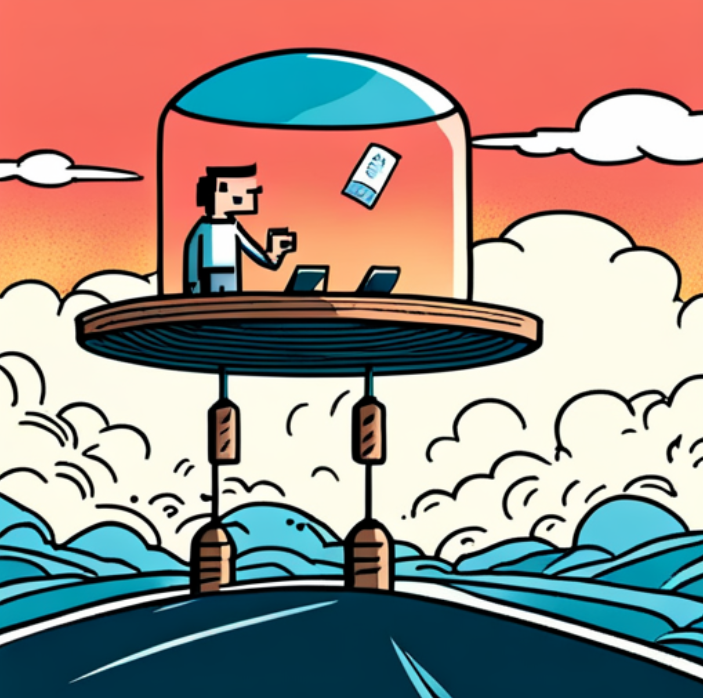If you are wondering why did Flappy Bird get banned, you are at the right place. Learn entrepreneurial insights from the spectacular rise and fall of Flappy Bird, an example of simplicity mastering viral marketing and handling success.
As entrepreneurs, we are often drawn to the compelling stories of successful companies, their rise to prominence, and the challenges they face. Yet, the tale of ‘Flappy Bird’, a simple yet addictive game, holds valuable lessons that are often overlooked. Developed by Vietnamese artist and programmer Dong Nguyen, Flappy Bird soared to the top of the App Store charts, only to be taken down by its creator at the peak of its popularity. This story is not just about a mobile game, but it serves as a remarkable case study in the unpredictable nature of entrepreneurial success and the multifaceted challenges it can bring.
Flappy Bird’s rise to fame was nothing short of meteoric. It was not backed by a prominent game studio or significant marketing spend. Instead, it was the result of one individual’s labor, combined with the right elements of timing, simplicity, and user engagement. Its sudden ascension to the top of the charts took everyone by surprise, including its creator. For entrepreneurs, this highlights the inherent uncertainty in our endeavours and how even the simplest ideas can turn into gold mines if they strike the right chord.
However, success can often be a double-edged sword, as exemplified by Flappy Bird’s fall. The unintended consequences of the game’s success became overwhelming for Nguyen, leading to his decision to pull the game from the App Store. While it might seem counterintuitive to many entrepreneurs, this part of the story teaches us that managing success can sometimes be as challenging as attaining it. It pushes us to rethink our definition of success and to consider the implications it may have on our personal lives and mental health.
The rise and fall of Flappy Bird offers a rich tapestry of lessons, ranging from product development and marketing, to handling success and recognizing our limits. This account serves as a testament to the unpredictable dynamics of the market, the impact of viral trends, and the bittersweet realities of unexpected fame. It urges entrepreneurs to remain adaptable, humble, and self-aware as they navigate their own journeys towards success.
As we delve into this story, let’s not just see it as a chronicle of a mobile game, but as an allegory of entrepreneurship. It is an opportunity to understand the intricate aspects of building a product, reaching the pinnacle of success, and the subsequent decision to let go, when necessary. So, let’s explore the rise and fall of Flappy Bird and glean lessons that can inform our entrepreneurial journey.
Reasons for the Rise of Flappy Bird
- Simplicity: Flappy Bird’s gameplay was as simple as it gets: tap the screen to keep the bird flying without hitting any pipes. This simplicity meant anyone could play it, leading to a broad user base and word-of-mouth marketing. Entrepreneurs should remember that a product doesn’t have to be complex to be successful. Sometimes, the simplest ideas are the most powerful.
- Difficulty: Despite its simplicity, Flappy Bird was notoriously difficult. This made it addictive and gave users a sense of achievement when they beat their high scores. The element of challenge can be an important driver of user engagement and retention.
- Mobile First: In an era where smartphones were becoming ubiquitous, Flappy Bird tapped into the trend by providing an engaging experience tailored to mobile devices. By focusing on a platform experiencing explosive growth, the game found a massive audience.
- Free to Play: Flappy Bird was free to download and play, removing barriers to entry and allowing it to spread rapidly. Pricing strategies can significantly impact the adoption rate of your product or service.
- Viral Potential: The competitive nature of Flappy Bird, coupled with its shareable scores, made it go viral on social media. Understanding the virality factors in your product or service can help it grow exponentially.
- Retro Aesthetics: Flappy Bird’s pixelated graphics tapped into a sense of nostalgia, attracting gamers who grew up in the era of 8-bit gaming. Leveraging nostalgia can be an effective way to differentiate your product.
- Luck and Timing: Flappy Bird was released when the App Store was not as saturated, increasing its visibility. It also coincided with a period where players were looking for casual games. Timing and luck often play a big role in success, although they’re not something you can control.
- Endless Gameplay: Flappy Bird had no levels or endpoints, ensuring that players always had a reason to play “one more time”. This resulted in an addictive loop that kept users engaged.
- Unintentional PR: The mystery surrounding the creator and the unexpected success story sparked widespread media coverage, amplifying its popularity. Sometimes, a unique story or narrative can give your product an edge.
Reasons for the Fall of Flappy Bird
- Overwhelming Success: The sudden success of the game became a source of anxiety for its creator, who was unprepared for the attention. Entrepreneurs should be prepared to manage success, especially when it comes rapidly and unexpectedly.
- Criticism and Pressure: Nguyen faced criticism for Flappy Bird’s simplicity, perceived plagiarism, and addictive nature. The backlash and scrutiny can be overwhelming, particularly when the product’s success is unexpected.
- Addictive Nature: Nguyen felt guilty about the game’s addictive nature and its impact on users’ lives. It’s crucial for entrepreneurs to consider the societal implications of their products.
- Invasion of Privacy: The intense media interest invaded Nguyen’s personal life. Striking a balance between public interest and privacy can be a delicate act for successful entrepreneurs.
- Managing Expectations: With success comes the expectation of maintaining it. Nguyen might have felt the pressure to replicate or exceed Flappy Bird’s success.
- Monetization Challenges: Although Flappy Bird generated advertising revenue, the absence of in-app purchases might have limited its long-term financial viability.
- Legal Concerns: Flappy Bird’s pipe design closely resembled those in Nintendo’s Mario games, raising potential legal issues.
- Mental Health: Nguyen’s mental health was impacted due to the stress associated with the game’s success. Entrepreneurs must take care of their mental health, even more so during periods of immense stress.
- Desire for Normalcy: Ultimately, Nguyen wanted to return to a normal life, free from the pressures associated with Flappy Bird. Success can sometimes feel like a trap, and it’s essential to define what success means for you personally.
The story of Flappy Bird is a quintessential tale of entrepreneurship in the digital age. Its meteoric rise underlines the potency of simplicity, the power of viral marketing, and the importance of being in the right place at the right time. However, its abrupt fall serves as a stark reminder of the unexpected challenges success can bring, the importance of managing mental health, and the courage to prioritize personal well-being over business success.
In the entrepreneurial landscape, the tale of Flappy Bird prompts us to rethink the definition of success. Is it about reaching the pinnacle of popularity, generating immense revenue, or achieving a sense of satisfaction from creating something valuable? Nguyen’s decision to pull the plug at the peak of success points towards the latter, underscoring the importance of personal happiness and peace of mind in the entrepreneurial journey.
Flappy Bird’s story also underlines the importance of preparation. Success often comes with unanticipated challenges. Thus, as entrepreneurs, it is crucial to build strong support systems, both personal and professional, that can help us navigate the choppy waters of success. It emphasizes that while we aspire for success, we must also be ready to handle it.
In conclusion, the rise and fall of Flappy Bird isn’t just a narrative about a mobile game. It’s a story about the unpredictability of success, the unanticipated consequences of fame, and the personal strength needed to prioritize well-being over entrepreneurial victory. It offers a poignant lesson to all entrepreneurs: success is not just about reaching the top, but also about how you manage the journey, handle the pressures, and maintain your peace of mind while doing so.
Follow Startup Theater on Instagram for valuable content on entrepreneurship
If you’re a startup founder, submit your startup story for free with us
Did you know? Startups like to use our coworking space in Bangalore
Call +917090977222 to reserve your space at Work Theater
Learn more about our coworking space on our YouTube channel Work Theater Studios where we talk about a variety of topics including personal finance, entrepreneurship, business and life.




